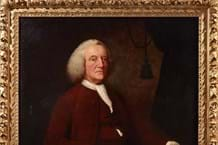Michael Bowman was targeted by two buyers who tried to use other people's credit cards and he is eager to alert others to the continued dangers.
It comes on the back of last week's report about four suspected phone bid fraudsters who will be appearing in crown court later this month, and shows there is still a risk to auction houses.
The latest attempted con was on Saturday, March 17 and involved a sale at Chudleigh Town Hall, Devon, said Mr Bowman.
One phone bidder, supposedly from Bristol, went for £1200 of silver, while another, apparently from Swindon, snapped up £2700 in gold.
Both wanted to pay by credit card over the phone, but Mr Bowman said he would only arrange for the items sold to be sent to the registered addresses for those cards. The buyers' reaction - they were reluctant to accept that - made him suspicious.
He had already been alerted by the buyers' behaviour. Both had bid large sums without ever asking to see any details of the lots they were bidding on.
The result was that, instead of releasing the goods, Mr Bowman sent invoices out to the addresses at which the cards were registered.
People at both addresses responded, declaring they knew nothing about the sale, with the person at the Bristol address revealing his credit card had actually been stolen and he had already cancelled it.
That victim also said items had been posted to him from another auction house, which he had sent back, indicating a more widespread fraud.
"I'm sure they must have tried it on other auctioneers and I suspect someone out there probably has been caught by it," Mr Bowman toldATG.
"I thought it was unusual at the time because I knew I hadn't sent any images or details about the items, and that's odd with people to want to buy items like this, and the fact you had one person bidding in the silver section, one in the gold on the telephone... either it's a rare treat or something a bit strange.
"Admittedly if one of the lots is a $20 gold piece which is described as having some rubbing in the central areas, it is not totally blind - you know roughly what you are bidding for - but with other things there, like the gold pocket watch, that could be in any condition, it is unusual not to ask about it.
"They probably arrange the phone bidding on the day of the auction so it's very late in proceedings - another reason someone might not think about it," he said.
"My main message is 'use common sense' - you are dealing with a long-distance transaction; if something seems a bit too good to be true, it usually is.
"It's nice for the auctioneer to have someone bidding on the gold and silver section on the phone, because usually you've got the normal dealers in the room, so there's increased competition, but usually you have fairly in-depth inquiries about things before any phone lines are booked."
Mr Bowman said it was all about assessing the risk.
"I've had auctions before when I've had someone explain to me he collects casualty medals, people who have died in the Second World War - that's his particular interest.
"When he buys them and wants to pay for them over the phone by card, in that situation they're relatively low value, combined with the fact you've had conversations with a person and you know why he wants to buy them.
"Something can go wrong there, but when it's someone you don't know, and you don't know why they want to buy something - and it starts to be a higher amount - then use more caution."




